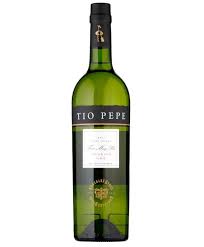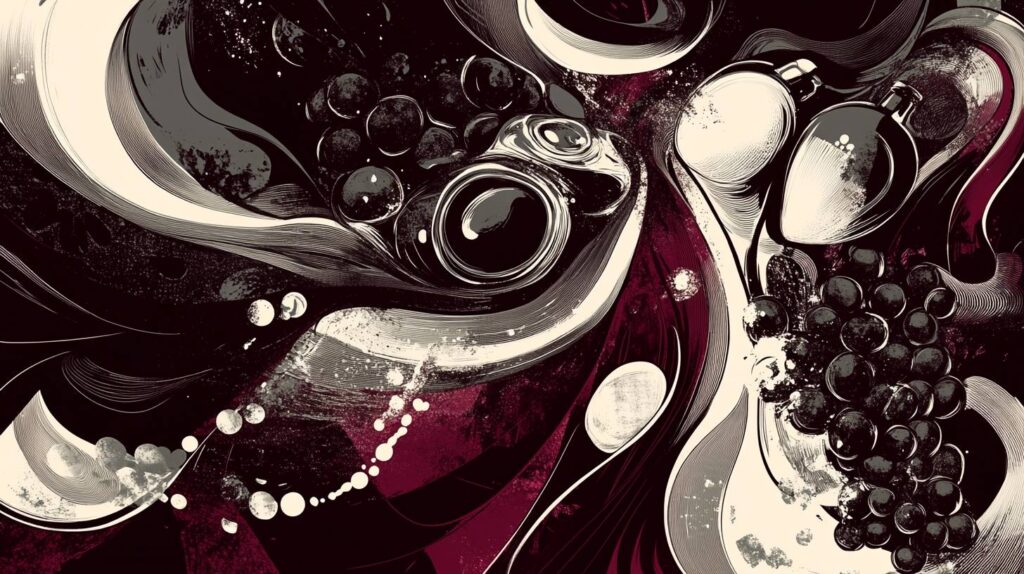Are you tired of always reaching for the same bottle of vermouth when making cocktails? Or perhaps you have a recipe that calls for vermouth but you don’t have any on hand. Don’t worry, we’ve got you covered. In this article, we’ll explore some great white wine substitutes for vermouth that you can try at home. Expand your palate and elevate your cocktail game with these white wine alternatives.
1. Dry White Wine
When substituting dry white wine in recipes, it can be a suitable alternative for vermouth. Here are some steps to follow:
- Consider the recipe: Dry white wine works best in recipes that require the herbaceous and slightly bitter flavor of vermouth.
- Choose the right wine: Look for dry white wines such as Sauvignon Blanc, Pinot Grigio, or Chardonnay. Avoid sweeter wines.
- Adjust the amount: Typically, you can replace vermouth with an equal amount of dry white wine in a recipe.
- Consider the alcohol content: Vermouth is fortified, so if the recipe requires a higher alcohol content, consider adding a small amount of a spirit like vodka or gin.

True history: Dry white wine has been used as a substitute for vermouth in cocktails and cooking for decades. The versatility and flavor profile of dry white wine make it a popular choice for those seeking an alternative to vermouth.
2. Sherry
Sherry, like Tio Pepe, is a fantastic alternative to vermouth in cocktails and recipes. Its dry and nutty flavor profile adds depth and complexity to dishes such as risotto or seafood stews. Sherry also pairs well with olives and can be used as a flavorful marinade for meats.
In cocktails, it brings a unique twist to classic drinks like the Martini or Manhattan.

Fun fact: Sherry has a long history dating back to ancient times and was popularized by the Romans. It later became a favorite among British sailors during their voyages and is still enjoyed worldwide today for its rich taste and versatility.
3. Dry Vermouth
Dry vermouth is a type of fortified wine that is often used in cocktails and cooking. However, if you don’t have dry vermouth on hand, there are a few white wine subsitutes you can try.
- White wine: A dry white wine, such as Sauvignon Blanc or Pinot Grigio, can be used in place of dry vermouth in most recipes. It will provide a similar flavor profile and level of acidity.
- White grape juice: If you prefer a non-alcoholic option, white grape juice can be substituted for dry vermouth. This will add a touch of sweetness and acidity to your dish.
- Apple cider vinegar: For a tangy and slightly fruity taste, apple cider vinegar can be used as a substitute for dry vermouth. It works well in dishes that require a bit of acidity.
Remember, the amount of substitute needed may vary depending on the recipe, so it’s best to start with a smaller amount and adjust to your liking.
4. Lillet Blanc
Lillet Blanc is a popular white wine substitute in cocktails. This French aperitif wine is made from a blend of Bordeaux wines and citrus liqueurs. With its fruity and floral flavor profile, featuring hints of honey and orange, Lillet Blanc pairs well with gin, vodka, and other spirits, making it a versatile ingredient in cocktails.

Whether you’re mixing up a classic Martini or a refreshing Spritz, Lillet Blanc adds a unique twist to your drink. For a true taste of its versatility, try it in a Corpse Reviver #2.
On a warm summer evening, a group of friends gathered on a rooftop terrace, enjoying the sunset. As they sipped their cocktails, one friend introduced them to the wonders of Lillet Blanc. Intrigued by its vibrant flavor, they decided to experiment with different cocktail recipes. The evening was filled with laughter, delightful conversations, and the discovery of new favorite drinks. Lillet Blanc quickly became a staple in their cocktail repertoire, always reminding them of that memorable summer night.
5. Apple Cider Vinegar
When searching for white wine substitute for vermouth in a recipe, consider using apple cider vinegar as a suitable alternative. Follow these steps:
- Begin by using a 1:1 ratio of apple cider vinegar to replace the required vermouth in the recipe.
- Keep in mind that apple cider vinegar is more acidic than vermouth, so you may need to adjust the other ingredients accordingly.
- If the recipe calls for a large amount of vermouth, consider diluting the apple cider vinegar with water to lessen its intensity.
- Taste and adjust as needed, adding more apple cider vinegar or water to achieve the desired flavor.
- Remember that using apple cider vinegar will add a slightly fruity and tangy flavor to your dish, so consider the overall taste profile.
6. Rice Wine Vinegar
When you need a substitute for vermouth in a recipe, consider using rice wine vinegar. Here are some steps to follow:
- Check if the recipe requires rice wine or rice wine vinegar.
- If it calls for rice wine, replace it with an equal amount of rice wine vinegar.
- Keep in mind that rice wine vinegar has a stronger flavor than rice wine, so adjust the amount according to your taste.
- Rice wine vinegar can add acidity and tanginess to your dish, similar to vermouth.
- Note that rice wine vinegar does not contain alcohol, so it won’t provide the same flavor profile as vermouth.
- Experiment with different vinegars, like sherry or apple cider vinegar, to find the closest match to rice wine vinegar in flavor.
7. White Grape Juice
Using white grape juice as a white wine substitute for vermouth can add a sweet and fruity flavor to your cocktails or recipes. Here are the steps to use white grape juice as a vermouth substitute:
- Choose a high-quality white grape juice with no added sugars.
- Measure the required amount of vermouth for your recipe.
- Replace with an equal amount of white grape juice.
- Adjust the sweetness as needed by adding a small amount of simple syrup or honey.
- Stir or shake the cocktail to incorporate the flavors.
- Taste and adjust the other ingredients accordingly.
- Enjoy your cocktail with the unique flavor of white grape juice!
Did you know that white grape juice has been used as a non-alcoholic alternative to vermouth since the early 20th century? It provides a similar flavor profile without the alcohol content, making it a popular choice for those who prefer alcohol-free beverages.
8. White Wine Vinegar
White wine vinegar is a suitable alternative for vermouth in various recipes. Follow these steps to use it as a replacement:
- Start by diluting the vinegar with water to reduce its acidity level.
- Use an equal amount of the diluted white wine vinegar as the required amount of vermouth in the recipe.
- Add the diluted vinegar to the recipe at the same stage where vermouth is called for.
- Keep in mind that white wine vinegar has a stronger and more acidic flavor compared to vermouth, so adjust the amount according to your taste.
9. White Wine and Lemon Juice
Using white wine and lemon juice as a substitute for vermouth in cocktails adds a tangy flavor and acidity. Here’s a simple step-by-step guide:
- Choose a dry white wine that complements your cocktail.
- Squeeze fresh lemon juice, removing any seeds or pulp.
- In a mixing glass, combine equal parts white wine and lemon juice.
- Stir well to blend the flavors.
- Use the mixture as a substitute for vermouth in your cocktail recipe.
Pro-tip: Adjust the ratio of white wine to lemon juice based on your personal taste preferences and the specific cocktail you are making. Experiment with different ratios to find the perfect balance.
How to Choose the Right Substitute?
When searching for a substitute for vermouth, it is crucial to take into account the flavor profile and acidity of the chosen wine to ensure a good match. Here are some steps to help guide your decision:
- Identify the specific flavor notes that vermouth contributes to the recipe.
- Select a white wine with similar flavor characteristics, such as a dry and crisp Sauvignon Blanc for a herbal and zesty vermouth.
- Consider the acidity level: a higher acidity wine, like a Pinot Grigio, can replace a dry and acidic vermouth.
- Before adding it to the recipe, taste test the substitute to ensure compatibility.
Pro-tip: If you do not have any white wine on hand, you can also use a combination of apple cider vinegar and water as a substitute for vermouth. Simply mix 3 parts apple cider vinegar with 1 part water to achieve a similar flavor profile.
What Are the Key Differences between Vermouth and White Wine?
Vermouth and white wine have distinct differences in their production process and flavor profiles.
Vermouth is a fortified wine that is infused with a variety of botanicals, such as herbs, spices, and roots, and is also aromatized with wormwood, giving it a unique bitter taste.
In contrast, white wine is made solely from fermented grapes without any added botanicals or aromatics, resulting in a fruity and refreshing flavor.
While both can be used in cooking and cocktails, their individual characteristics make them better suited for specific recipes and flavor profiles.
What Are the Best Uses for Each Substitute?
When considering substitutes for vermouth, it’s important to understand their best uses in various dishes and drinks. Here are some suggestions:
- Dry white wine: Ideal for deglazing pans, making sauces, or adding depth to soups and stews.
- Sherry: Adds a nutty flavor to sauces, marinades, and desserts like trifle or tiramisu.
- Dry vermouth: Perfect for classic cocktails like martinis, or in recipes that call for its distinct herbal notes.
- Lillet Blanc: Great for enhancing fruity cocktails or as an ingredient in a summer punch.
- Apple cider vinegar: Works well in salad dressings, marinades, and pickling recipes.
- Rice wine vinegar: Commonly used in Asian cuisine, especially for sushi rice or stir-fries.
- White grape juice: A non-alcoholic substitute that adds sweetness and acidity to mocktails and desserts.
- White wine vinegar: Provides tanginess and acidity to salad dressings, marinades, and pickled vegetables.
- White wine and lemon juice: A combination that can be used interchangeably with vermouth in recipes.
Remember to adjust the quantities of these substitutes to achieve the desired flavor profile in your dish. Have fun experimenting with these alternatives and discovering new flavors!
How Do Substitutes Affect the Flavor of a Dish?
When substituting ingredients in a dish, it’s important to consider how the substitute will impact the overall flavor profile. To understand this better, follow these steps:
- Identify the primary flavor of the original ingredient.
- Research the flavor profile of the substitute.
- Consider the intensity and balance of flavors in the dish.
- Adjust quantities of the substitute accordingly.
- Taste and evaluate the dish during the cooking process.
- Make additional adjustments if necessary to achieve the desired flavor.
In the early 19th century, renowned French chef Auguste Escoffier popularized the use of substitutes in his culinary creations, revolutionizing the way flavors were combined in dishes.
Can You Use Non-Alcoholic Substitutes for Vermouth?
Yes, it is possible to use non-alcoholic substitutes for vermouth. There are various options available that can provide a similar flavor profile without the alcohol content.
White grape juice is a good alternative as it offers a mild sweetness and acidity. Another option is white wine vinegar, although it may add a more acidic and tangy taste. Additionally, mixing white wine with lemon juice can mimic the citrusy notes of vermouth.
When selecting a non-alcoholic substitute for vermouth, it is important to consider the specific recipe and desired taste.
Frequently Asked Questions
What is Vermouth and why would I need a substitute?
Vermouth is a fortified wine that is often used in cocktails and cooking. It has a distinct flavor and can be difficult to find in some areas. In these cases, it is helpful to know about potential substitutes.
What are some common types of white wine that can be used as substitutes for Vermouth?
Some common types of white wine that can be used as substitutes for Vermouth include dry white wine, Sauvignon Blanc, Pinot Grigio, and dry Sherry. These wines have similar flavor profiles and can easily be substituted in most recipes.
Can I use any type of white wine as a substitute for Vermouth?
While you can use any type of white wine as a substitute for Vermouth, it is important to consider the flavor profile of the wine and how it will affect the overall taste of the dish. Dry white wines work best as substitutes, while sweet white wines may alter the flavor too much.
Are there any non-alcoholic substitutes for Vermouth?
Yes, there are non-alcoholic substitutes for Vermouth, such as grape juice, apple cider vinegar, or white grape juice concentrate. These options will not have the same flavor as Vermouth, but they can provide a similar level of acidity and sweetness.
How do I know which white wine substitute to use in a recipe?
It is best to choose a white wine substitute that has a similar flavor profile to Vermouth. If the recipe calls for a specific type of white wine, such as Sauvignon Blanc, it is best to use that wine as a substitute. Otherwise, choose a dry white wine that you enjoy drinking.
Can I use a white wine substitute for Vermouth in any recipe?
While most recipes that call for Vermouth can be substituted with a white wine, there are some recipes, such as classic cocktails, that require the unique flavor of Vermouth. In these cases, it is best to use Vermouth or find a similar fortified wine as a substitute.








